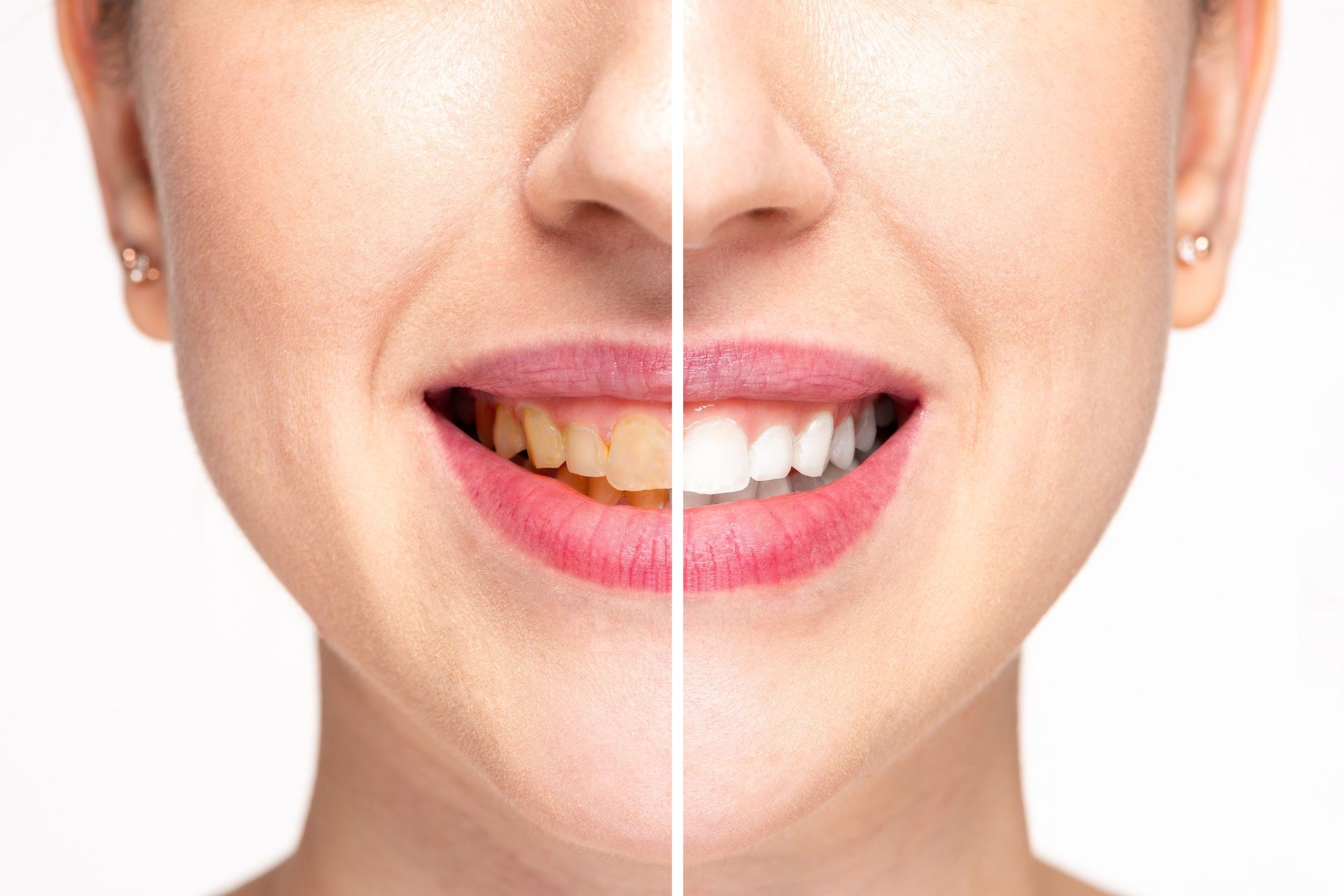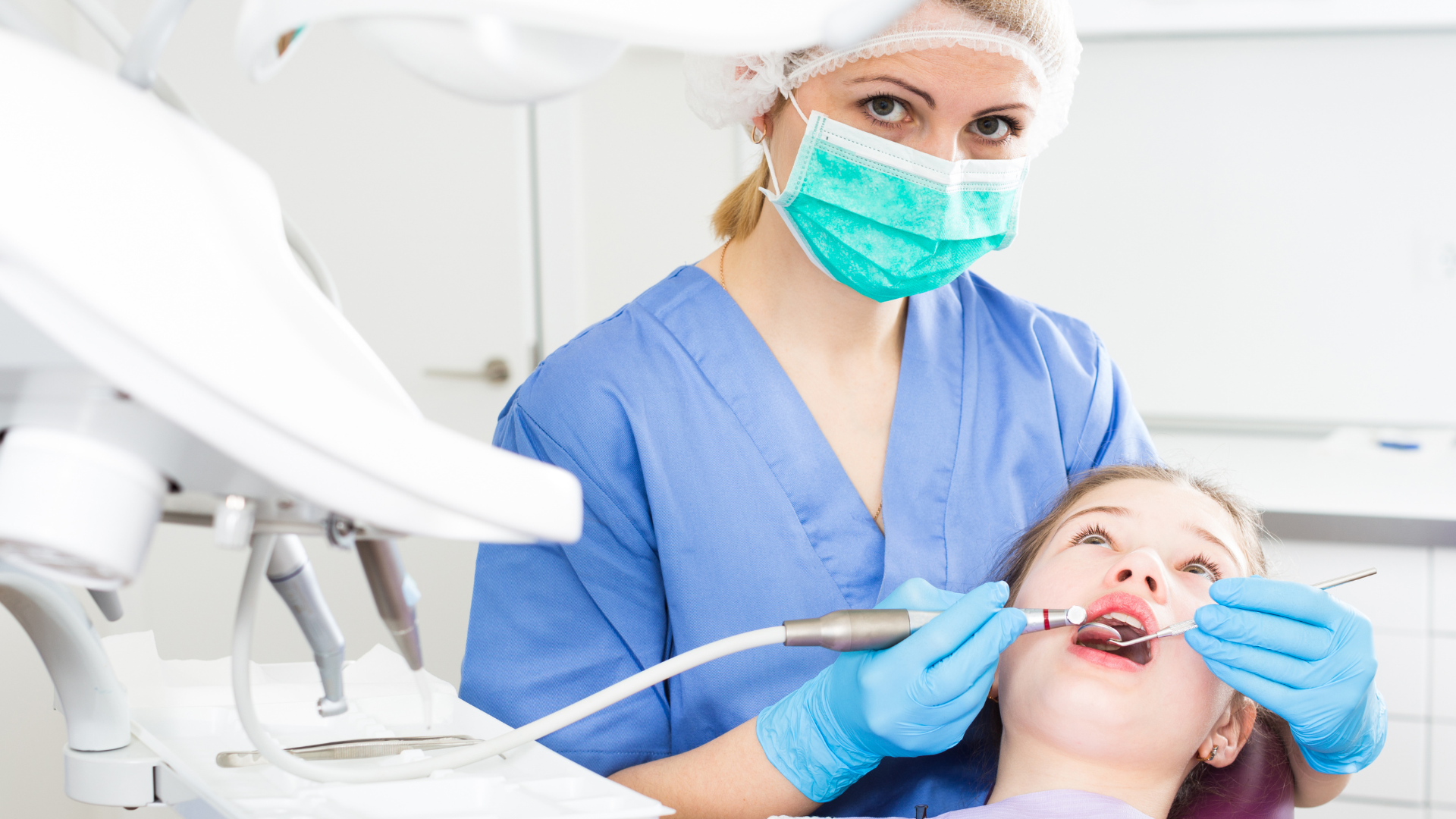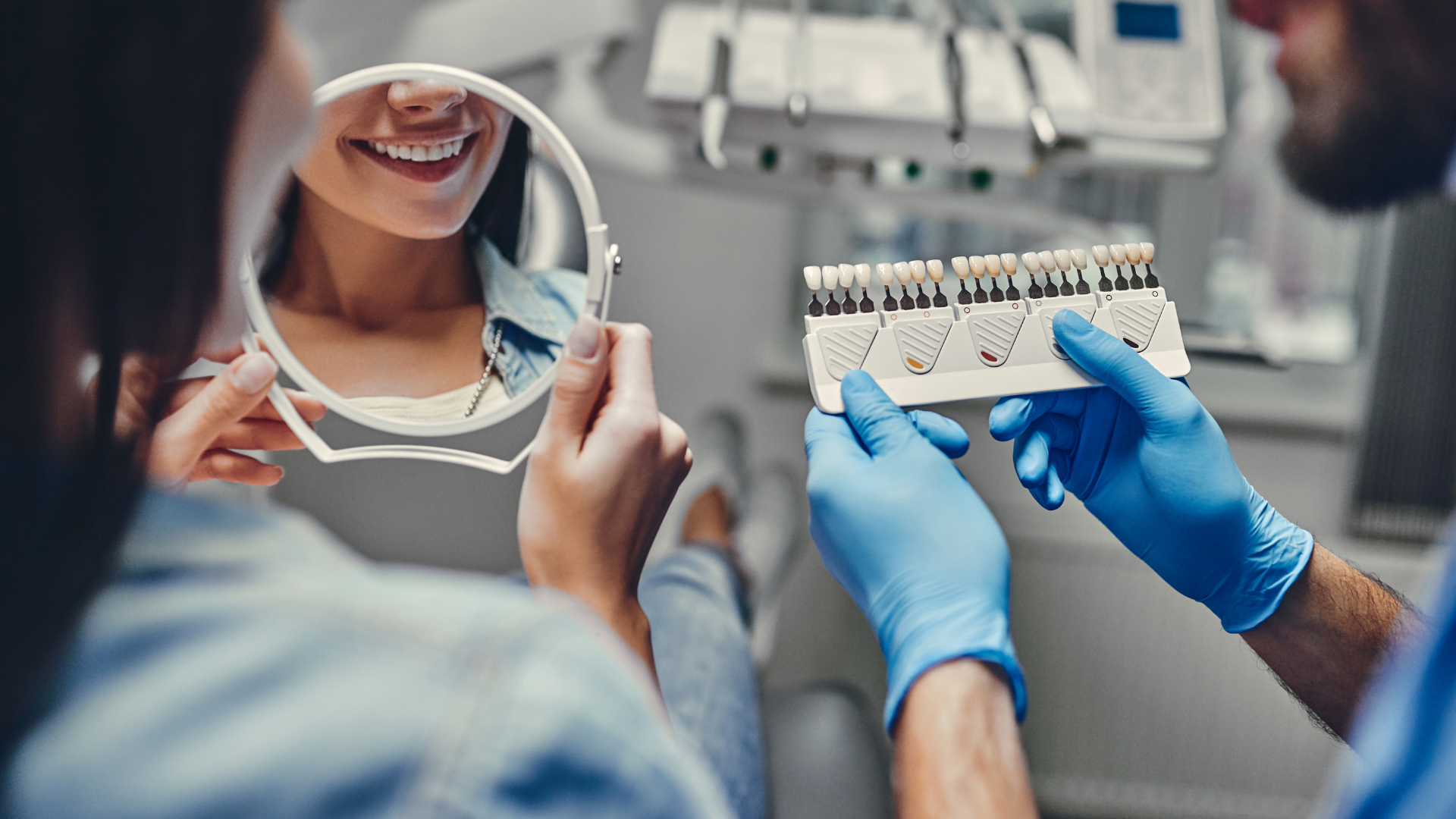How Much Does Professional Teeth Whitening Cost: Exploring Pricing Options
Are you considering a brighter, more confident smile? If you’ve ever wondered, “how much is teeth whitening in Midland, TX?”—you’re not alone! At Dentistry of Midland, led by John K Drisdale DMD, we get this question every day. With so many options, confusing prices, and online myths, it’s easy to feel overwhelmed.
This definitive guide gives you honest, local answers, including real Midland pricing, patient experiences, expert advice, and everything you need to make an informed decision—right here in the Permian Basin.
Why Midland Trusts John K Drisdale DMD for Teeth Whitening
When it comes to your smile, experience and local reputation matter. Dr. John K Drisdale has served Midland for over 20 years, providing safe, stunning cosmetic results with a neighborly touch. At Dentistry of Midland, our patients aren’t just numbers—they’re our friends, coworkers, and fellow Midlanders.
What sets us apart?
- Real Midland Pricing: No hidden fees. Transparent quotes upfront.
- Customized Care: Every smile is unique. Your whitening plan should be too.
- Cutting-Edge Technology: We use the latest Zoom! and Opalescence systems for dramatic, safe results.
- Genuine Reviews: Read hundreds of five-star testimonials from real Midland patients.
“I was nervous about whitening but Dr. Drisdale made me feel comfortable from start to finish. My teeth look amazing—and I love that the team explained all my options clearly!”
—
Patient A., Midland, TX
How Much Is Teeth Whitening in Midland, TX?
The cost of teeth whitening in Midland depends on the method you choose:
- Professional in-office whitening: Up to $1,000 per session
- Custom dentist-prescribed take-home trays: $250 – $400
- Over-the-counter strips & kits: $20 – $100
What Factors Influence Teeth Whitening Costs?
- Level of Staining: Tough stains may need more than one treatment.
- Desired Shade: Dramatic results may require professional strength.
- Method Chosen: In-office procedures are the fastest, but at-home kits can be more affordable.
- Provider Reputation: Experienced dentists often use higher-quality, safer products.
- Current Specials or Insurance Coverage: Ask about seasonal promotions!
Patient Stories: Real Results in Midland
Seeing is believing! Here are a few anonymized stories from real patients of Dr. John K Drisdale DMD (with before/after photo consent):
Patient A, Age 42
“I tried drugstore strips for years but never got the white smile I wanted. Dr. Drisdale’s in-office treatment took just one hour and my teeth were instantly 6 shades brighter! I get compliments all the time now.”
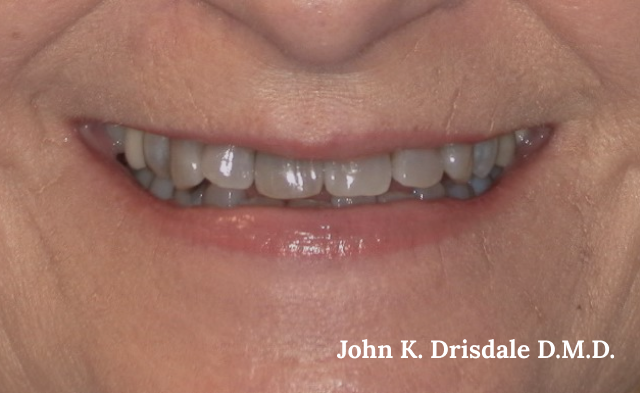
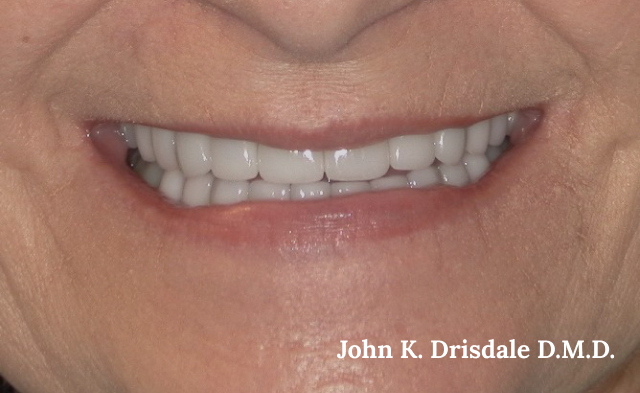
Teeth Whitening Options Compared
Wondering which method is best? Here’s a closer look at all your options—so you can choose the right fit for your smile, lifestyle, and budget.
Professional In-Office Whitening
- Performed by: Licensed dentist or dental hygienist
- Products used: High-strength bleaching gels (Zoom!, Opalescence, KöR, etc.)
- Session time: 60–90 minutes
- Results: Immediate and dramatic (up to 8 shades lighter in one visit)
- Longevity: 1–3 years with good oral care
- Ideal for: Special events, severe stains, fast results seekers
Pros:
- Fastest and most dramatic results
- Supervised by dental professionals—safe for sensitive teeth
- Customizable for your goals
- Fewer treatments needed
Cons:
- Higher upfront cost
- Temporary sensitivity possible
At-Home Professional Kits
- Provided by: Your dentist, with custom-fit trays and professional-grade gel
- How it works: Wear trays for 30–60 minutes daily, for 1–2 weeks
- Results: Noticeable improvement in 7–14 days
- Longevity: 1–2 years
- Ideal for: Busy schedules, gradual whitening, sensitive teeth
Pros:
- Convenient, flexible timing
- Custom trays prevent gum irritation
- Professional gel is safer and more effective than store kits
- Less expensive than in-office
Cons:
- Results take longer
- Must be consistent with daily use
Over-the-Counter Whitening
- Options: Whitening strips, LED kits, generic trays, whitening toothpaste
- Availability: Drugstores, supermarkets, online
- Results: Subtle improvement after 2–4 weeks
- Longevity: Few months
- Ideal for: Minor stains, low budgets
Pros:
- Affordable, easy to buy
- Good for mild discoloration
Cons:
- Not as effective as dentist options
- Ill-fitting trays/strips can cause gum sensitivity
- Lower concentration of bleaching agents
- Not monitored by dental professionals
Cost Comparison Table: Whitening Methods
| Whitening Method | Average Cost (Midland, TX) | Pros | Cons | Expected Results |
|---|---|---|---|---|
| In-Office Whitening | $375 – $650 | Fast, dramatic, dentist-supervised | More expensive, possible sensitivity | Up to 8 shades lighter in 1 hour |
| Take-Home Professional Kits | $250 – $400 | Custom trays, gradual, dentist support | Slower results, daily use required | 2–5 shades lighter in 2 weeks |
| Over-the-Counter Strips/Kits | $20 – $100 | Cheap, easy to access | Mild results, potential gum issues | 1–2 shades lighter in 2–4 weeks |
Is Professional Whitening Worth It? A Dentist’s Honest Perspective
As a top-rated dentist in Midland, Dr. John K Drisdale DMD is passionate about patient education. Here’s his honest take:
Myth-Busting: Teeth Whitening Facts
- Myth: All whitening is the same.
Fact: Only dental professionals can use medical-strength gel for safe, lasting results. - Myth: Whitening ruins your enamel.
Fact: Professional treatments protect your enamel and gums, unlike many DIY kits. - Myth: It’s too expensive.
Fact: Whitening is more affordable than you think, especially with current specials and payment plans at Dentistry of Midland!
“Most of our patients say professional whitening was the best investment in their confidence and self-care. In-office treatments are safe, fast, and customized. We see fewer side effects and longer-lasting results compared to over-the-counter products.”
—
Dr. John K Drisdale DMD
When Should You Choose Professional Whitening?
- You want fast, reliable results for a wedding, reunion, or job interview.
- You have deep, stubborn stains from coffee, wine, or tobacco.
- You want the safest option for sensitive teeth or dental work.
- You care about long-term value, not just a quick fix.
Supporting Data
- According to the American Dental Association, dentist-supervised whitening is significantly more effective and safer than at-home products.
- 98% of Dentistry of Midland patients surveyed in 2024 said they would recommend our whitening services to friends and family.
FAQ: Teeth Whitening in Midland, TX
Get Started: Book Your Free Whitening Consultation
Don’t wait another day to love your smile. Whether you’re comparing whitening options or ready for a confident, brighter you, Dentistry of Midland is your local leader for stunning results and trusted care.
- Book a Free Consultation:
Call (432) 684-7424 or Click Here to Schedule - Ask About Our 2025 Specials:
Don’t miss out on the best deals of the year—mention this guide when you call!
“After trying every whitening strip out there, professional whitening at Dentistry of Midland was a total game-changer. Fast, easy, and my teeth have never looked better!”
—
Midland patient, age 37
Why Choose John K Drisdale DMD & Dentistry of Midland?
- Locally owned and operated—your neighbors, not a chain
- Hundreds of happy Midland patients
- Flexible scheduling, Friday appointments, and online booking
- Committed to safety, comfort, and real results
Ready for a Brighter Smile?
Take the first step—call (432) 684-7424, schedule your free consultation!
At Dentistry of Midland, your best smile is just one visit away.

